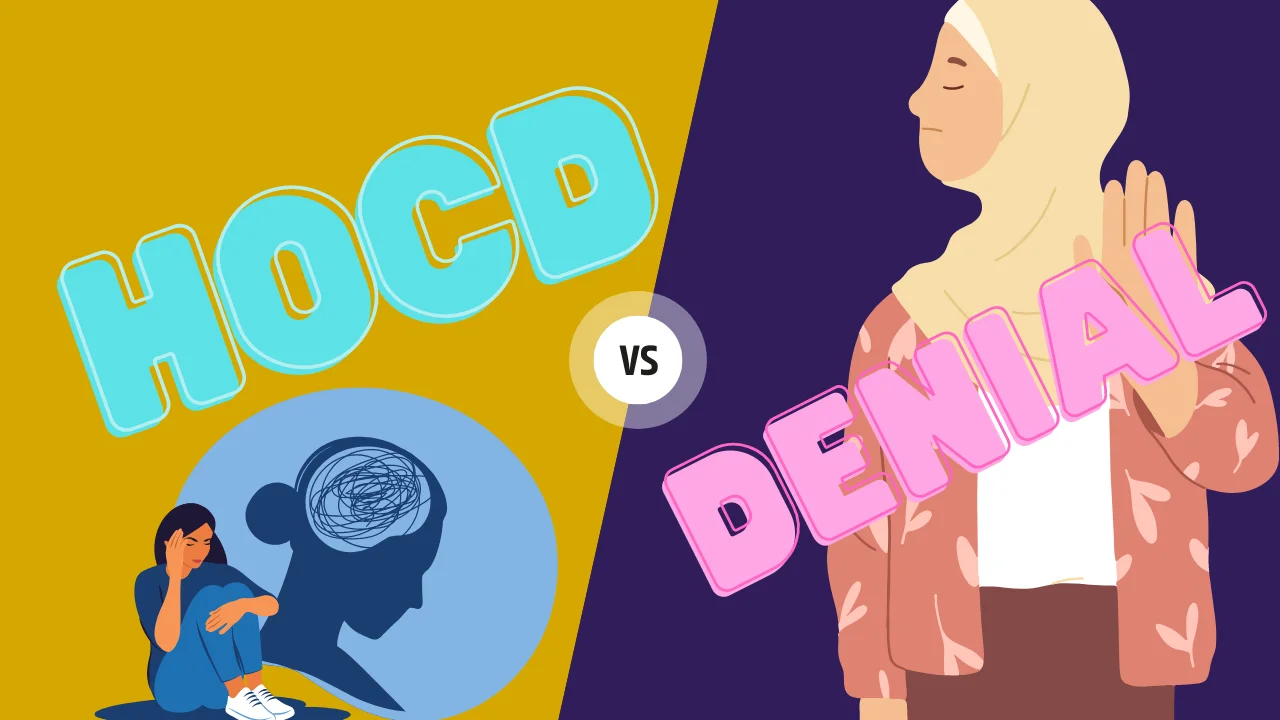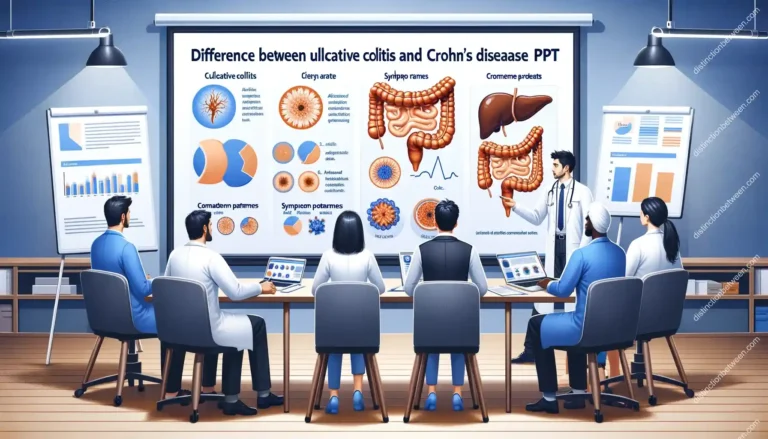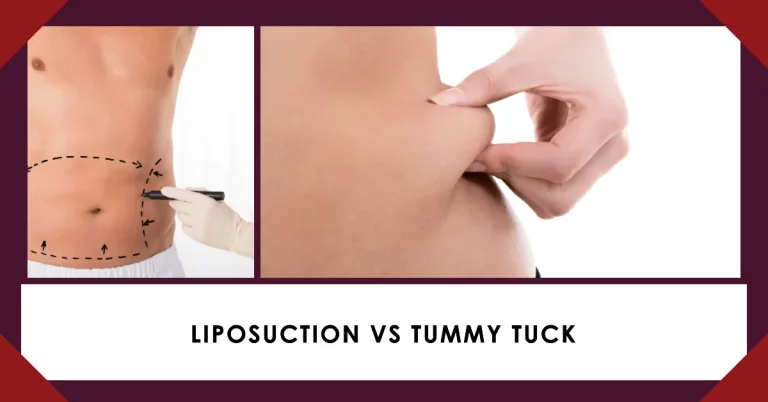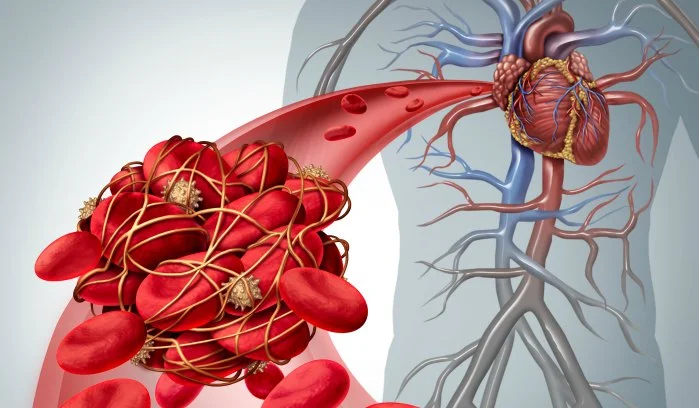What is difference between hocd and denial?
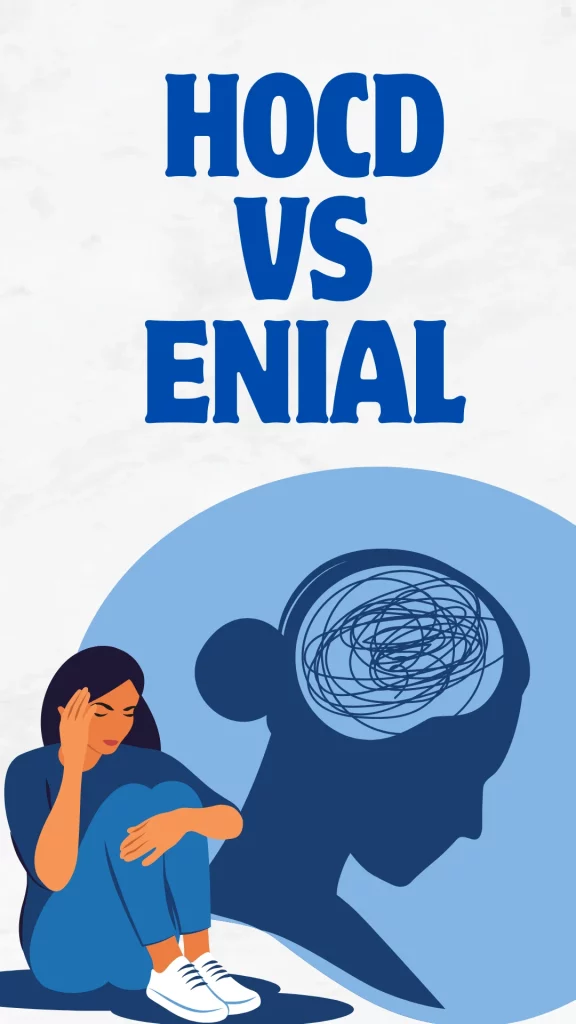
Have you ever come across the terms “HOCD” and “denial” and wondered what sets them apart? You’re not alone! These two concepts, while seemingly related, have distinct differences that are crucial to understand. Let’s dive right in and unravel difference between hocd and denial in the simplest way possible.
🔑 Key Difference at a Glance:
- HOCD (Homosexual Obsessive Compulsive Disorder): An anxiety disorder marked by overwhelming fears about one’s sexual orientation, even if they identify as heterosexual.
- Denial: A mental defense where individuals refuse to acknowledge their genuine feelings or identity, often influenced by societal pressures or personal apprehensions.
🎨 Visual Breakdown:
| Feature | H OCD | Denial |
|---|---|---|
| Nature | Anxiety Disorder | Psychological Mechanism |
| Driven By | Fear & Uncertainty | Refusal & Avoidance |
| Manifests As | Compulsions, Obsessions | Avoidance, Reluctance |
📌 Note: Think of H OCD as a storm of anxiety and doubts, while denial is like a shield we sometimes use to protect ourselves from facing certain truths.
💬 Quote to Ponder: “The clearer we are about what we are, and what we are not, the more we find peace in life.” – Anonymous
By the end of this article, you’ll have a clear understanding of both HOCD and denial. We’ll explore their origins, how they manifest, and ways to cope. So, let’s embark on this enlightening journey together!
What is HOCD?
HOCD, or Homosexual Obsessive Compulsive Disorder, is a topic that’s often misunderstood. Let’s dive into what it truly means.

🔍 Definition and Characteristics:
- HOCD: It’s an anxiety disorder where individuals experience obsessive unwanted thoughts about being or becoming homosexual obsessive-compulsive disorder, even if they identify as heterosexual.
- Nature of Thoughts: These thoughts are intrusive, unwanted, and can cause significant distress.
📌 Note: HOCD doesn’t determine one’s sexuality. It’s about the fear and anxiety surrounding these thoughts, not the actual sexual orientation.
📝 Common Misconceptions about HOCD:
- It’s About Denial: Many believe HOCD is just a phase of denial about one’s true sexuality. This isn’t the case.
- It’s Rare: HOCD isn’t widely discussed, leading some to believe it’s rare. However, many people experience it.
🗣 Real-life Experiences:
- Anna’s Story: “I always identified as straight. But suddenly, I started having these intrusive thoughts about being same-sex attraction. It caused me so much anxiety, and I didn’t know why. Learning about HOCD helped me understand.”
💡 Tip: Recognizing and understanding HOCD is the first step towards seeking appropriate help and support.
What is Denial?

Denial is a term we often hear, but what does it truly mean in the context of our emotions and identity?
🔍 Definition and Psychological Background:
- Denial: It’s a defense mechanism where individuals refuse to acknowledge or accept certain truths or realities about themselves, often due to societal pressures or personal fears.
- Nature of Denial: It’s not just about refusing facts; it’s a complex emotional state that can shield us from painful truths.
📌 Note: Denial can be both conscious (knowingly refusing to accept a fact) and unconscious (unaware of the refusal).
📝 Types of Denial and Their Implications:
- Simple Denial: Refusing to accept a proven fact. E.g., ignoring a health issue.
- Minimisation: Admitting the fact but downplaying its importance. E.g., acknowledging a drinking problem but calling it “just a phase.”
- Projection: Blaming someone else for one’s own feelings or actions.
🗣 How Denial Manifests in Everyday Life:
- Mike’s Story: “I always felt different but brushed those feelings aside, thinking it’s just a phase. It took me years to accept that I was gay. Denial was my shield against societal judgment.”
💡 Tip: Acceptance is a journey. It’s okay to seek help if you’re struggling with denial. Talking to someone can provide clarity and support.
Key Similarities Between HOCD and Denial
While HOCD and denial are distinct concepts, they share some common ground. Let’s explore their similarities.
📊 Emotional Responses:
- Anxiety: Both HOCD and denial can lead to heightened anxiety. This anxiety stems from internal conflicts and societal pressures.
- Nervousness: The uncertainty surrounding one’s feelings can cause nervousness.
- Fear: Fear of judgment, self-rejection, or societal backlash can be present in both cases.
📝 Behavioral Patterns:
- Avoidance: Individuals might avoid certain situations, conversations, or people that trigger their anxieties.
- Compulsive Behaviors: Especially in HOCD, individuals might engage in behaviors to constantly check or reassure their sexuality.
- Sleep Disturbances: The mental turmoil can lead to sleepless nights or nightmares.
🌍 Societal Perceptions and Stigmas:
- Misunderstandings: Both HOCD and denial are often misunderstood by society, leading to misconceptions.
- Judgment: People might face judgment, either self-imposed or from others, based on their feelings or perceived sexuality.
- Pressure: Societal norms and expectations can amplify the internal conflict individuals feel.
📌 Note: While there are similarities, it’s crucial to remember that HOCD and denial are unique experiences. One is an anxiety disorder, while the other is a psychological defense mechanism.
💡 Tip: Compassion and understanding are key. Whether you or someone you know is experiencing HOCD or denial, it’s essential to approach the situation with empathy and open-mindedness.
Difference between hocd and denial
Understanding the nuances between HOCD and denial is crucial. Let’s break down the differences for clarity.
🔍 The Role of Anxiety in HOCD vs. The Role of Fear in Denial:
- HOCD: Dominated by intrusive thoughts and compulsions related to one’s sexuality, leading to heightened anxiety.
- Denial: Driven by a deep-seated fear of accepting a certain truth about oneself, often due to societal or personal pressures.
📊 Self-Identification and Sexual Orientation Doubts:
- HOCD: Individuals with HOCD don’t doubt their sexuality but fear they might become or are homosexual ocd, despite evidence to the contrary.
- Denial: Individuals in denial might genuinely be uncertain about their sexuality but refuse to acknowledge or accept it.
📝 Treatment Options and Their Effectiveness:
- HOCD: Cognitive Behavioral Therapy (CBT) has proven effective, focusing on managing obsessive thoughts and compulsions.
- Denial: Counseling and therapy can help individuals come to terms with their feelings and identity.
🗣 Jane’s Insight: “When I was struggling with my feelings, I initially thought I had HOCD. But after therapy, I realized I was in denial about my sexuality. Understanding the difference was a turning point for me.”
💡 Tip: It’s essential to seek professional guidance if you’re unsure about your feelings. A therapist or counselor can provide clarity and support tailored to your experience.
Coping Mechanisms and Support
Navigating the complexities of HOCD and denial can be challenging. However, with the right coping mechanisms and support, individuals can find relief and understanding.
🌱 Seeking Professional Therapy and Counseling:
- Why It’s Important: A trained professional help can provide insights, coping strategies, and a safe space to discuss feelings.
- Benefits: Therapy can help individuals understand their feelings, reduce anxiety, and develop self-acceptance.
📞 The Importance of Open Communication with Loved Ones:
- Open Up: Sharing feelings and concerns with trusted friends or family can provide emotional support.
- Remember: You’re not alone. Many people go through similar experiences and can offer guidance and understanding.
🍎 Lifestyle Changes:
- Sleep: Ensure you’re getting enough rest. Sleep can significantly impact mental well-being.
- Diet: A balanced diet can help regulate mood and energy levels.
- Exercise: Physical activity can reduce anxiety and improve mood.
- Relaxation Techniques: Practices like meditation, deep breathing, and yoga can help manage stress.
🌐 Online Communities and Support Groups:
- Join: There are many online forums and communities where individuals share their experiences with HOCD and denial.
- Benefits: These platforms offer a sense of community, understanding, and shared experiences.
📌 Note: Everyone’s journey is different. It’s essential to find coping mechanisms that resonate with you and your unique experience.
💡 Tip: Always prioritize your mental well-being. If a particular coping mechanism doesn’t work for you, don’t be discouraged. Explore other options and find what suits you best.
The Role of Media and Society
In today’s digital age, media and societal norms play a significant role in shaping our perceptions and beliefs. Let’s explore how they impact our understanding of HOCD and denial.
📺 How Media Portrayal Affects Perceptions of HOCD and Denial:
- Stereotypes: Media often perpetuates stereotypes about sexuality, which can influence how individuals perceive themselves and others.
- Representation Matters: Positive and diverse representation of different sexual orientations can help break down misconceptions and foster understanding.
🌍 The Impact of Societal Norms and Expectations:
- Pressure to Conform: Societal expectations can pressure individuals into conforming to certain norms, leading to feelings of denial or confusion.
- Changing Times: While society has come a long way in accepting diverse sexual orientations, there’s still work to be done. Awareness and education are key.
🌈 Overcoming Stigmas and Embracing Self-Acceptance:
- Educate: Knowledge is power. Educate yourself and others about HOCD and denial to break down stigmas.
- Self-Love: Embrace who you are. Self-acceptance is a journey, and it’s okay to seek support along the way.
📌 Note: Media and society have a powerful influence, but remember to trust your journey and feelings. Everyone’s experience is unique.
💡 Tip: Engage with inclusive media and communities that promote understanding and acceptance. Surrounding yourself with positive influences can make a world of difference.
FAQs
Navigating the intricacies of HOCD and denial can lead to numerous questions. Here, we address some of the most common queries to provide clarity and understanding.
No, HOCD is an anxiety disorder characterized by intrusive thoughts. It doesn’t determine or reflect one’s actual sexual orientation.
Denial is a psychological defense mechanism, while HOCD is an anxiety disorder. If you’re unsure, it’s best to seek professional counseling or therapy for clarity.
Yes, therapy, especially Cognitive Behavioral Therapy (CBT), can be beneficial in addressing HOCD and feelings of denial.
Societal norms and misconceptions can contribute to stigmas. Education and awareness are crucial in breaking down these barriers.
Absolutely! There are many online forums, communities, and local support groups that offer guidance and shared experiences.
📌 Note: It’s essential to remember that everyone’s journey is unique. Seeking professional guidance can provide personalized insights and support.
💡 Tip: If you have questions or concerns, don’t hesitate to reach out. There are numerous resources and mental health professional available to help.
Conclusion
Understanding the nuances between HOCD and denial is more than just a matter of definitions. It’s about recognizing the emotional and psychological journeys that many undergo, often in silence due to societal pressures and misconceptions.
HOCD, as an anxiety disorder, brings forth intrusive thoughts that can be distressing. On the other hand, denial is a defense mechanism, a protective shield against potential judgments or fears. While they may seem similar on the surface, their roots and manifestations differ significantly.
It’s crucial for readers to remember that neither condition defines one’s true self or sexual orientation. Both can be addressed and managed with the right support, understanding, and professional guidance.

